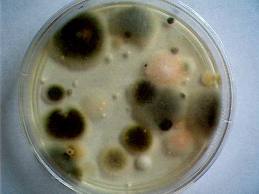The findings of a study published in the Journal Proceedings of the National Academy of Sciences suggest that fungus could be linked to the symptoms of Parkinson’s disease. It was hitherto thought that man-made toxins played a role in Parkinson’s disease alone.
Dopamine is a chemical which is released by nerve cells to send messages to the brain but when these nerve cells die, the lack of dopamine causes the brain cells to die as well. There are up to one million sufferers with Parkinson’s in the US with as many as 60 000 diagnosed daily. Similarly, Parkinson’s is quite prevalent in the Caribbean.
These new findings have implications for the treatment and management of Parkinson’s in the region and worldwide many sufferers in the Caribbean.
A mold, called 1-octen-3-ol, commonly known as mushroom alcohol, may be linked to defects in two genes involved in the creation and transportation of dopamine according to Rutgers University in New Jersey and Emory University in Georgia.
In an interesting the twist, co-author of the study Joan Bennett, of the School of Environmental and Biological Sciences at Rutgers University, says the idea that fungus may play a part in causing illness stemmed from a personal experience of house mold following flooding from Hurricane Katrina. She was prompted to take samples of the mold to determine any connection between the symptoms she experienced in her home and the fungus.
When fruit flies were exposed to the fungus samples, it was found that the 1-octen-3-ol compound caused the flies to experience movement disorders similar to what they experience in certain pesticides. The researchers note that previous studies have suggested the incidence of Parkinson’s disease is on the increase in rural areas, and this is attributed to pesticide exposure.
The fungus compound also caused reduced dopamine levels and dopamine neuron degeneration in the flies.
It was identified that two were involved in the creation of dopamine – the human plasma membrane dopamine transporter (DAT) and the human VMAT ortholog (VMAT2).














